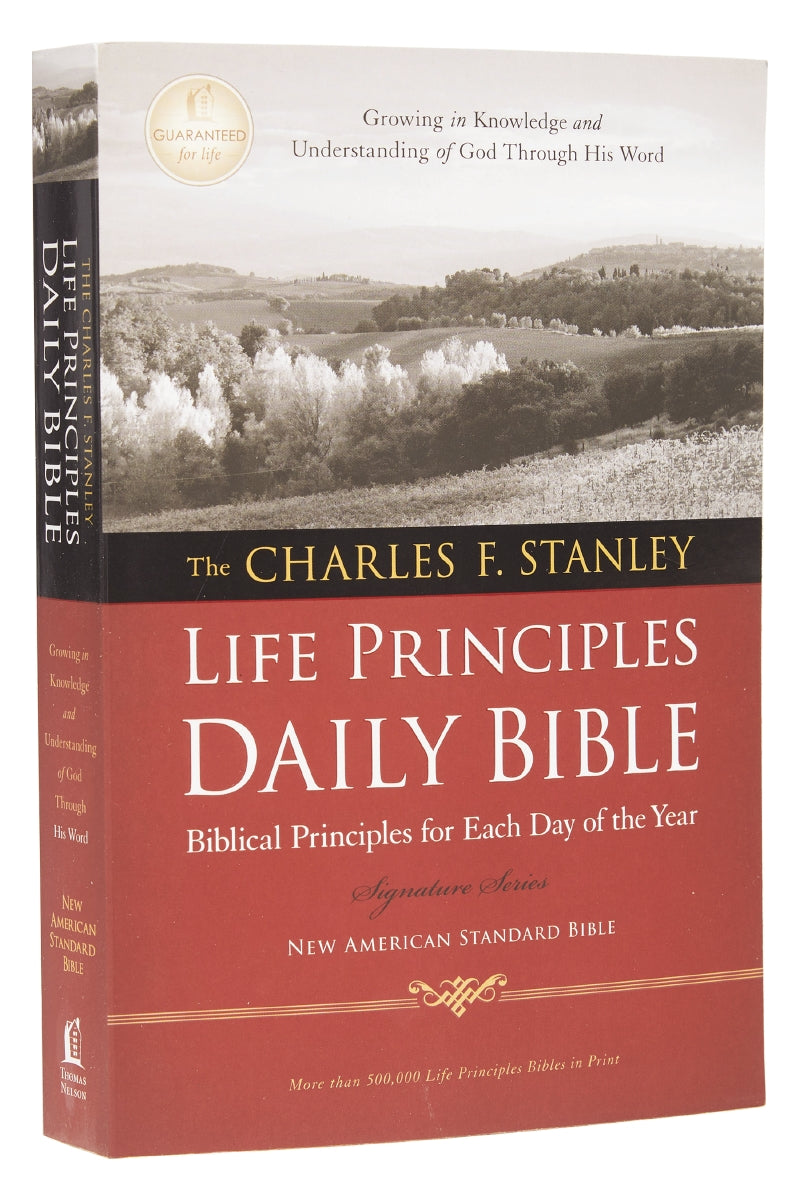Exodus 3:1-4:17
New American Standard Bible
The Burning Bush
3 Now Moses was pasturing the flock of his father-in-law (A)Jethro, the priest of Midian; and he led the flock to the [a]west side of the wilderness and came to (B)Horeb, the (C)mountain of God. 2 Then (D)the angel of the Lord appeared to him in a blazing fire from the midst of [b]a (E)bush; and he looked, and behold, the bush was burning with fire, yet the bush was not being consumed. 3 So Moses said, “(F)I must turn aside and see this [c]marvelous sight, why the bush is not burning up!” 4 When the Lord saw that he turned aside to look, (G)God called to him from the midst of the bush and said, “Moses, Moses!” And he said, “Here I am.” 5 Then He said, “Do not come near here; (H)remove your sandals from your feet, for the place on which you are standing is holy ground.” 6 And He said, “(I)I am the God of your father—the God of Abraham, the God of Isaac, and the God of Jacob.” (J)Then Moses hid his face, for he was (K)afraid to look at God.
7 And the Lord said, “I have certainly (L)seen the oppression of My people who are in Egypt, and have heard their outcry because of their taskmasters, for I am aware of their sufferings. 8 So I have come down (M)to rescue them from the [d]power of the Egyptians, and to bring them up from that land to a (N)good and spacious land, to a land flowing with milk and honey, to the place of (O)the Canaanite, the Hittite, the Amorite, the Perizzite, the Hivite, and the Jebusite. 9 And now, behold, (P)the cry of the sons of Israel has come to Me; furthermore, I have seen the oppression with which the Egyptians are oppressing them.
The Mission of Moses
10 And now come, and I will send you to Pharaoh, (Q)so that you may bring My people, the sons of Israel, out of Egypt.” 11 But Moses said to God, “(R)Who am I, that I should go to Pharaoh, and that I should bring the sons of Israel out of Egypt?” 12 And He said, “Assuredly (S)I will be with you, and this shall be the sign to you that it is I who have sent you: (T)when you have brought the people out of Egypt, (U)you shall [e]worship God at this mountain.”
13 Then Moses said to God, “Behold, I am going to the sons of Israel, and I will say to them, ‘The God of your fathers has sent me to you.’ Now they may say to me, ‘What is His name?’ What shall I say to them?” 14 And God said to Moses, “[f](V)I AM WHO [g]I AM”; and He said, “This is what you shall say to the sons of Israel: ‘[h]I AM has sent me to you.’” 15 God furthermore said to Moses, “This is what you shall say to the sons of Israel: ‘(W)The Lord, the God of your fathers, the God of Abraham, the God of Isaac, and the God of Jacob, has sent me to you.’ This is My name forever, and this is the [i](X)name for [j]all generations to use to call upon Me. 16 Go and (Y)gather the elders of Israel together and say to them, ‘(Z)The Lord, the God of your fathers, the God of Abraham, Isaac, and Jacob has appeared to me, saying, “[k](AA)I am indeed concerned about you and what has been done to you in Egypt. 17 So (AB)I said, I will bring you up out of the oppression of Egypt to the land of (AC)the Canaanite, the Hittite, the Amorite, the Perizzite, the Hivite, and the Jebusite, to a land (AD)flowing with milk and honey.”’ 18 Then (AE)they will [l]pay attention to what you say; and (AF)you with the elders of Israel will come to the king of Egypt, and you will say to him, ‘The Lord, the God of the Hebrews, has met with us. So now, please let us go a (AG)three days’ journey into the wilderness, so that we may sacrifice to the Lord our God.’ 19 But I know that the king of Egypt (AH)will not permit you to go, (AI)except [m]under compulsion. 20 So I will reach out with (AJ)My hand and strike Egypt with all My (AK)miracles which I shall do in the midst of it; and (AL)after that he will let you go. 21 I will grant this people (AM)favor in the sight of the Egyptians; and it shall be that when you go, you will not go empty-handed. 22 But every woman (AN)shall ask her neighbor and the woman who lives in her house for articles of silver and articles of gold, and clothing; and you will put them on your sons and daughters. So you will (AO)plunder the Egyptians.”
Moses Given Signs
4 Then Moses said, “What if they will not believe me or (AP)listen [n]to what I say? For they may say, ‘(AQ)The Lord has not appeared to you.’” 2 The Lord said to him, “What is that in your hand?” And he said, “(AR)A staff.” 3 Then He said, “Throw it on the ground.” So he threw it on the ground, and (AS)it turned into a serpent; and Moses fled from it. 4 But the Lord said to Moses, “Reach out with your hand and grasp it by its tail”—so he reached out with his hand and caught it, and it turned into a staff in his [o]hand— 5 “so that (AT)they may believe that (AU)the Lord, the God of their fathers, the God of Abraham, the God of Isaac, and the God of Jacob, has appeared to you.”
6 The Lord furthermore said to him, “Now put your hand inside the fold of your robe.” So he put his hand inside the fold, and when he took it out, behold, his hand was (AV)leprous like snow. 7 Then He said, “Put your hand inside the fold of your robe again.” So he put his hand into the fold again, and when he took it out of the fold, behold, (AW)it was restored like the rest of his flesh. 8 “So if they will not believe you nor [p]pay attention to the [q]evidence of the first [r]sign, they may believe the [s]evidence of the last [t]sign. 9 But if they will not believe even these two [u]signs nor pay attention to what you say, then you shall take some water from the Nile and pour it on the dry ground; and the water which you take from the Nile (AX)will turn into blood on the dry ground.”
10 Then Moses said to the Lord, “Please, Lord, (AY)I have never been [v]eloquent, neither [w]recently nor in time past, nor since You have spoken to Your servant; for I am [x]slow of speech and [y]slow of tongue.” 11 But the Lord said to him, “Who has made the human mouth? Or (AZ)who makes anyone unable to speak or deaf, or able to see or blind? Is it not I, the Lord? 12 Now then go, and (BA)I Myself will be with your mouth, and (BB)instruct you in what you are to say.” 13 But he said, “Please, Lord, now send the message by [z]whomever You will.”
Aaron to Be Moses’ Mouthpiece
14 Then the anger of the Lord burned against Moses, and He said, “Is there not your brother Aaron the Levite? I know that [aa]he speaks fluently. And moreover, behold, (BC)he is coming out to meet you; when he sees you, he will be [ab]overjoyed. 15 So you are to speak to him and (BD)put the words in his mouth; and I Myself will be with your mouth and his mouth, and I will instruct you in what you are to do. 16 (BE)He shall speak for you to the people; and he will be as a mouth for you and you will be as God to him. 17 And you shall take in your hand (BF)this staff, (BG)with which you shall perform the signs.”
Footnotes
- Exodus 3:1 Or rear part
- Exodus 3:2 Lit the
- Exodus 3:3 Lit great
- Exodus 3:8 Lit hand
- Exodus 3:12 Or serve
- Exodus 3:14 Related to the name of God, YHWH, rendered Lord, which is derived from the verb HAYAH, to be
- Exodus 3:14 Related to the name of God, YHWH, rendered Lord, which is derived from the verb HAYAH, to be
- Exodus 3:14 Related to the name of God, YHWH, rendered Lord, which is derived from the verb HAYAH, to be
- Exodus 3:15 I.e., name used in prayer, vows, and ceremony
- Exodus 3:15 Lit generation of generation
- Exodus 3:16 Lit Visiting I have visited
- Exodus 3:18 Lit hear your voice
- Exodus 3:19 Lit by a strong hand
- Exodus 4:1 Lit to my voice
- Exodus 4:4 Lit palm
- Exodus 4:8 Lit listen to
- Exodus 4:8 Lit voice
- Exodus 4:8 I.e., confirming miracle
- Exodus 4:8 Lit voice
- Exodus 4:8 I.e., confirming miracle
- Exodus 4:9 I.e., confirming miracles
- Exodus 4:10 Lit a man of words
- Exodus 4:10 Lit yesterday
- Exodus 4:10 Lit heavy
- Exodus 4:10 Lit heavy
- Exodus 4:13 Lit the hand You send
- Exodus 4:14 Lit speaking he speaks
- Exodus 4:14 Lit joyful in his heart
New American Standard Bible®, Copyright © 1960, 1971, 1977, 1995, 2020 by The Lockman Foundation. All rights reserved.
Bible Gateway Recommends






